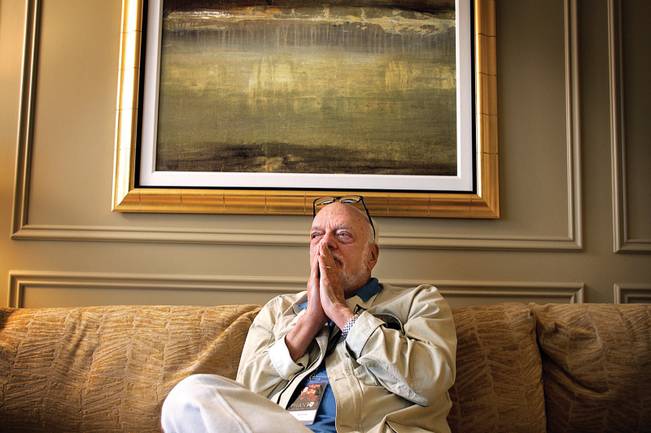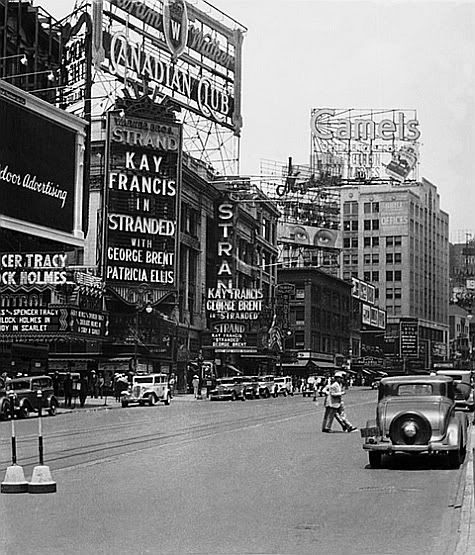Q+A: HAL PRINCE:
‘Phantom’ director on show’s heady early life, future in Vegas

Leila Navidi
Producer-director Hal Prince, 81, has won 21 Tony awards. An innovator who has a history of making Broadway productions work on the Strip, Prince never questioned the chances of “Phantom of the Opera,” and he’s extremely pleased with the version he condensed to match local tastes.
Monday, Sept. 28, 2009 | 2 a.m.
IF YOU GO
- What: “Phantom, The Las Vegas Spectacular”
- When: 7 and 9:30 p.m. Monday and Saturday, 7 p.m. Tuesday-Friday, dark Sunday; schedule varies from week to week
SELECTED BROADWAY RESUME
- “The Pajama Game” (1954)
- “Damn Yankees” (1955)
- “West Side Story” (1957 and 1960)
- “Tenderloin” (1960)
- “Take Her, She’s Mine” (1961)
- “A Funny Thing Happened on the Way to the Forum” (1962)
- “Fiddler on the Roof” (1964)
- “Cabaret” (1966 and 1987)
- “Zorba” (1968)
- “Candide” (1974 and 1997)
- “Sweeney Todd” (1979)
- “Evita” (1979)
- “The Phantom of the Opera” (1988)
- “Kiss of the Spider Woman” (1993)
- “Show Boat” (1994)
- “Lovemusik” (2007)
- “Paradise Found” (in production).
It’s easier, and take less space, to name the Broadway hits producer and director Hal Prince has not been associated with than to list the ones that he has.
The 81-year-old impresario has more than 60 Broadway shows to his credit and has won 21 Tony awards — more than any other individual — beginning with “Pajama Game” and “Damn Yankees” in the '50s and running through a special lifetime achievement award in 2006.
He’s also the man who made Broadway work in Vegas. “Phantom, The Las Vegas Spectacular” opened in 2006 and is still going strong.
Prince sat in his suite at the Venetian recently, overlooking the pool 12 stories below, and talked about the phenomenal success of Andrew Lloyd Webber’s classic musical.
Q: At what point did you realize “Phantom” was going to be so successful?
We opened really well (in 1986 at the West End in London). There was a lot of excitement. I would have thought maybe, based on the first couple of weeks, that “Evita” was a bigger hit. There was a lot of approval, but “Evita” seemed to be “Wow!” But not very long after that the return lines got longer and longer and longer. A lot of Americans came over for the opening and I guess it just kept gathering momentum. I think you really don’t know. Certainly by the time we opened in New York, which was two years later, you knew that it wasn’t going to depend too much on the reviews — but the reviews were good. They weren’t great, they were good. And some were great I suppose. But then you started to think, “Wait a minute. What’s going on?” It quickly became impossible to get into. Shows were selling out. The audiences were responding as one, all the time. That’s the whole thing. Most things there’s a controversial element —you’ve got 80 percent of the audience that gets it and the other 20 percent say “I don’t know what that’s all about.” That happens to most shows, but it didn’t happen to us.
We quickly started two other companies. I did the Japanese company almost immediately after New York opened. They went nuts in Japan. Then I did a company in Hamburg, Germany and that ran over 11 years. The show had a history — suddenly it was playing in 17 or 19 places. It opened last week in Seoul, Korea, for the second time. It goes back to places it’s already been. This last summer in New York was the best of any summer in the past five or six years.
I think it’s because of branding, a word I hate. I really despise it because everybody is seeking to brand something and I don’t get that, but I have to acknowledge it is branded. We do very little advertising. A lady just this morning said she took her daughter to see the show when she was 6 years old and she said, “Now I’m going to take my granddaughter when she’s 5.” I said, “No, wait till she’s 6. It’ll still be there.”
What about the production has made it so successful?
It’s lavish, it’s beautiful. The story is well told. Andrew has written a lot of romantic melodies. The core of all this is why we did it in the first place. To do something intensely romantic and something that would put mature audiences in touch with the child part of them, because everybody’s got a child part of them.
With all that success, did you have any trepidation about tinkering with the show when you brought it to Las Vegas?
None at all. But I have a history, which almost nobody knows about. I did the first tab version of a Broadway musical here in 1955 at the Riviera — I did “The Pajama Game” in an hour and a half. Then I did “Damn Yankees” at the Riviera two years later in an hour and half. Then I did a failure that I’d done on Broadway called “Tenderloin” at the Dunes. It bombed in New York but it was a success here. The show was about trying to close the Tenderloin, a nasty section of New York. There was a lot of nudity. So that was a good subject.
Then I was hired by the Caesars Palace to do “Fiddler on the Roof” with Theodore Bikel. I thought that’s a strange thing for a casino. But we ran over six years. You had this very, very surreal view of people in long lines in the casino waiting to go in and see “Fiddler on the Roof.” That one, the best I could do was cut it to an hour and 45 minutes. The original first act of that show runs an hour and 45 minutes but I did the whole show in an hour and 45 minutes. Hard. I suspect I savaged some of the material.
But I don’t feel I did that with this version of “Phantom.” I feel I compressed it. There’s clarity in the story. the music is all there. We cut a chorus here and there. Obviously on undertaking the assignment I wanted to do what they always accused it of being, a spectacle. I never thought the original was a spectacle. I thought it had a chandelier and they’re always mentioning the chandelier — and what is it? It’s a small chandelier that goes up slowly and comes down slowly to the stage and that’s fine, but that’s not why the show’s a success. Well, here in Vegas we gave them the chandelier and we gave them the outside of the Paris Opera House and we gave them a lot of effects because that’s what Vegas is about, grandiosity. And it’s correct. So I enjoyed going there with it. Two designers worked closely with me. One was Paul Kelly, who had been Maria Björnson’s assistant. After Maria died (in 2002) I wondered, “Lord what can we do? We’ve got to continue her vision.” Paul did it and did it brilliantly. And David Rockwell, he did the theater and some of the mechanics in the chandelier. It was really wonderful. That was the team.
Will it go on indefinitely?
I don’t see it coming to an end. I don’t see it coming to an end anywhere. It’s certainly not coming to an end in New York because we just had the best summer in five or six years. We did 99 percent capacity most of the summer. That’s truly bizarre.
Does this kind of success distort your view of reality? Every time you take on a project do you think it’s going to be another “Phantom?”
Not at all. Quite the reverse, which opens up what am I doing next. It’s quite the reverse and you’ll see why. I’m doing a show called “Paradise Found,” which Richard Nelson has written (inspired by Joseph Roth’s novel, “The Tale of the 1002nd Night”). Roth is the fella who wrote “The Radetzky March” (1932), a great Austrian writer (1894-1939). Ellen Fitzhugh wrote the lyrics (to “Paradise Found”) — very sharp, very acerbic, very funny. And the music is Johann Strauss II. Jonathan Tunick has taken charge of the music. I want all those melodies, but I don’t want wall-to-wall waltzes. They bore me. There’s so much melody there it’s incredible. It’s all beautiful. I said, “Jonathan, open your mind to orchestrating everything with different instrumentation than he (Strauss) used, because the melody will still be there but the impact of what we hear will be different.”
The cast will include Mandy Patinkin, John Cullum, Shuler Hensley, a girl named Kate Baldwin, Emily Skinner and Judy Kaye. They’re all first rate. I’ve worked with almost all of them and there are a lot of Tony awards there. They’ve waited for me for a year to do it and we’re going to do it in London for seven seeks at the Menier Chocolate Factory and then come to Broadway and then what I’ll do, if they all like it — I hope, I’ll do a duplicate for the West End so the Chocolate Factory people can make some money out of it. They’re sort of our co-producers.
Have you ever bombed when you knew in your heart it would be a success?
No. But I’ve had a show that I adored and it didn’t fall flat but was not appreciated sufficiently — the last one I did, “Lovemusik.” I thought it was wonderful. I guess I was naive enough to think there was an audience for the very open, strange marriage of (Austrian singer/actress) Lotte Lenya and (German composer) Kurt Weill. That may be obtuse of me but he wrote great music and she was a great personality (she was the villainess in the 1963 James Bond movie “From Russia with Love”). I worked with her in “Cabaret.” I loved the way it (“Lovemusik”) turned out. It got some great reviews, and some not so great. Basically that was a disappointment. I have worked on a few things that I didn’t have total confidence in because I wanted to work. I’ve always wanted to work and so I took the opportunity. If you worry too much about topping yourself or matching yourself or any of that you’re going to work much less and deny yourself a whole lot of experience — even if you’ve done a flop you’ve learned from it. It’s very likely you’ll learn more from it than a hit.






















